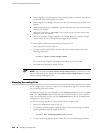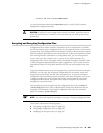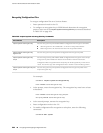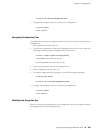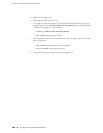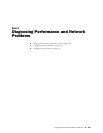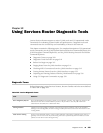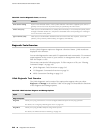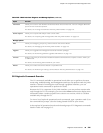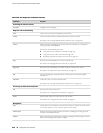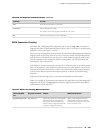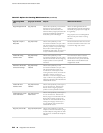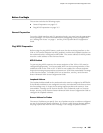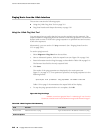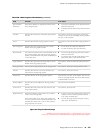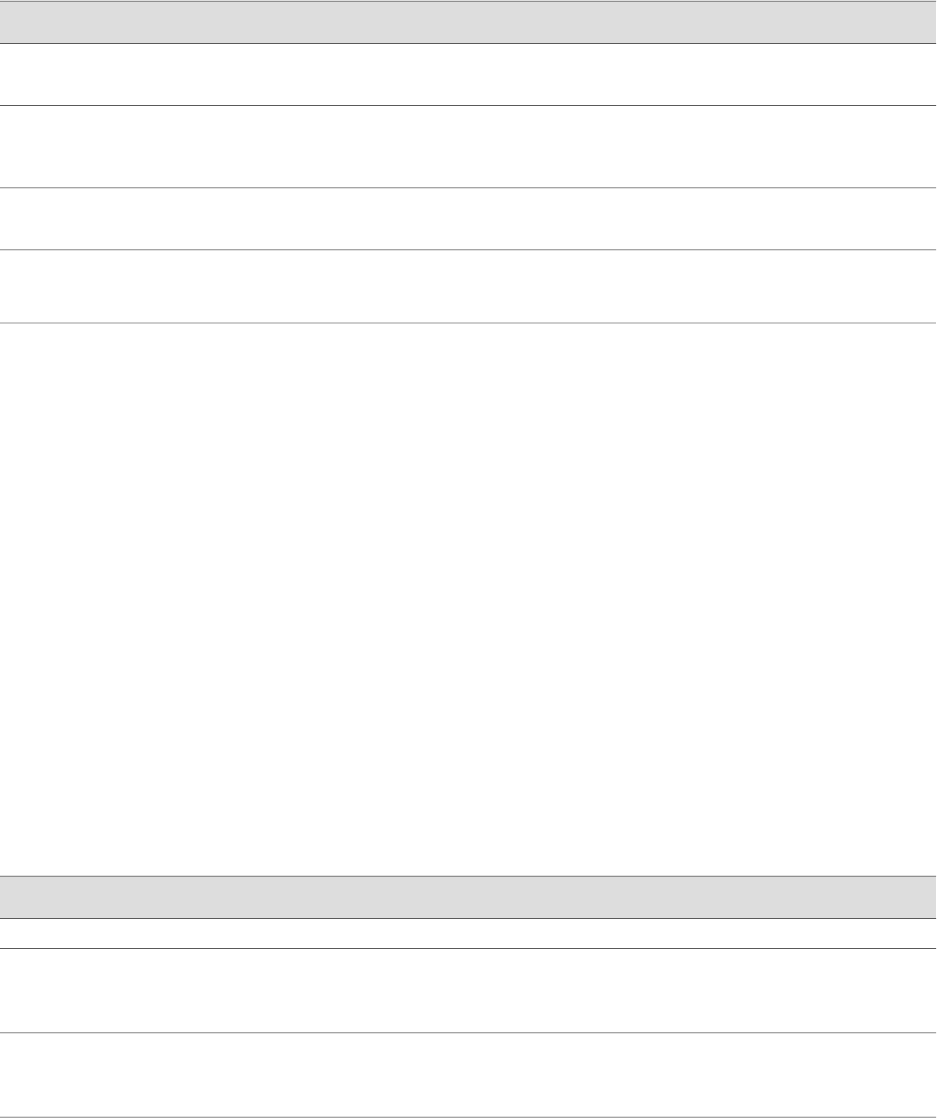
Table 104: J-series Diagnostic Terms (continued)
DefinitionTerm
Option in the IP header used to route a packet based on information supplied by the source. A
gateway or host must route the packet exactly as specified by this information.
strict source routing
Value (octet) in the IP header that is (usually) decremented by 1 for each hop the packet passes
through. If the field reaches zero, the packet is discarded and a corresponding error message is
sent to the source of the packet.
time to live (TTL)
Value (octet) in the IP header that defines the service the source host requests, such as the
packet's priority and the preferred delay, throughput, and reliability.
type of service (TOS)
Diagnostic Tools Overview
Use the J-Web Diagnose options to diagnose a Services Router. J-Web results are
displayed in the browser.
You can also diagnose the router with CLI operational mode commands. CLI command
output appears on the screen of your console or management device, or you can
filter the output to a file.
This section contains the following topics. To filter output to a file, see “Filtering
Command Output” on page 105.
■ J-Web Diagnostic Tools Overview on page 210
■ CLI Diagnostic Commands Overview on page 211
■ MPLS Connection Checking on page 213
J-Web Diagnostic Tools Overview
The J-Web diagnostic tools consist of the options that appear when you select
Diagnose and Manage in the task bar. Table 105 on page 210 describes the functions
of the Diagnose and Manage options.
Table 105: J-Web Interface Diagnose and Manage Options
FunctionOption
Diagnose Options
Allows you to ping a remote host. You can configure advanced options for the ping operation.
For details, see “Using the J-Web Ping Host Tool” on page 216.
Ping Host
Allows you to ping an MPLS endpoint using various options.
For details, see “MPLS Connection Checking” on page 213.
Ping MPLS
210 ■ Diagnostic Tools Overview
J-series™ Services Router Administration Guide



